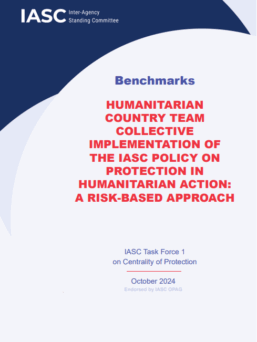This article highlights the opportunity that better collaboration between anthropologists and humanitarian organizations may provide better analysis and engagement of affected populations in our work. While not specific to protection, this article underscores the key elements of results-based protection.
· Anthropologists can provide valuable contributions to a comprehensive protection analysis, in particular with insights into the social, political, cultural, and economic context.
· Given differing timelines between the need to urgently respond in a humanitarian crisis and slower-paced research methods utilized in academia, iterative and continuous analysis that leads to adaptation of programming becomes especially important in order to incorporate this learning.
· The methods and skills used by anthropologists, in particular, listening skills, may provide important opportunities for incorporating perspectives of the affected population into the design and implementation of protection programs. Additionally, the article highlights the importance of empathy –
According to anthropologist, Olive Melissa Minor, ‘anthropology is simply about understanding local ways of seeing things,’ and when put into practice, it is ‘an exercise in using empathy as a research tool
· While results-based protection has not yet analyzed empathy in relation to achieving protection outcomes, there could be important learning from this area.
· Designing for the contribution of anthropologists and truly collaborating in humanitarian contexts more systematically can help us to better achieve protection outcomes while also challenging us to question assumptions, break down silos, and make concrete commitments to placing affected populations at the center of our response.


